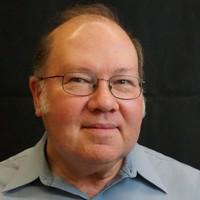Mark Feitelson received his B.S. degree in biology from UC Irvine in 1974, and his Ph.D. in Microbiology and Immunology in 1979 from the UCLA School of Medicine. He began his work with hepatitis B as an American Cancer Society postdoctoral fellow at Stanford University from 1980-82, and was then recruited to the Fox Chase Cancer Center by Dr. Baruch Blumberg (Nobel laureate). In 1991, Dr. Feitelson was appointed as Associate Professor of Pathology and Cell Biology at Thomas Jefferson University. In 2007, Dr. Feitelson moved to Temple University, where he is now Professor of Biology. His research has been supported by NIH, industry and foundations for more than 35 years, has more than 150 publications, including two books, 180 abstracts presented as posters and/or oral presentations at scientific meetings, and was the founding director of the Professional Science Master’s program in Biotechnology at Temple University. Since 1980, his research interests have encompassed the pathogenesis of chronic hepatitis B infection and development of hepatocellular carcinoma (HCC) on the cell and molecular levels. Recently, he has shown that molecules isolated from the gut microbiome delay the onset of HCC. This therapeutic approach is also been successfully demonstrated in other diseases characterized by chronic inflammation and tissue destruction. He is also CSO of SFA Therapeutics, which is a Temple University spin-out of the work in Dr. Feitelson’s lab. SFA has won many awards for innovation and excellence and is currently in human clinical trials for gut microbiome-based treatments for autoimmune diseases and cancer.
In addition to research, Dr. Feitelson has been teaching a number of undergraduate and graduate courses including microbiology, virology, critical thinking in biology (undergraduate), and microbial biotechnology (graduate). He has been a consultant for 13 companies since 1995 and has authored 11 patents. In the lab, he has mentored over 130 students since the mid-1980s, including 24 MS students in Biology, 8 Ph.D. students in Biology, and 13 postdoctoral fellows.

